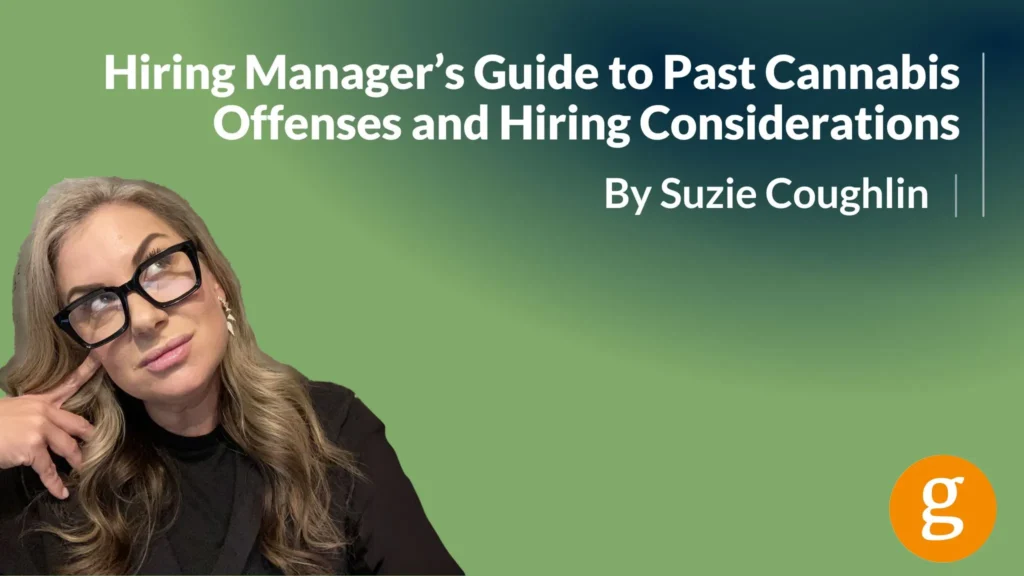Hiring Managers: What’s the Norm for Candidate Job Tenure?
Paul Duke | Hiring Advice, Opinion, Recruiting Career Advice | September 25, 2023

For most hiring managers and human resources leaders, job tenure is a big consideration when reviewing a job candidate’s resume and work history. Generally, the thought process goes like this: How long has this job candidate been with their current employer? How long did they stay in previous roles? What does this employment history tell me about the job candidate’s potential commitment to our job and company?
The game is changing for a growing number of hiring managers, with realistic expectations of job tenure being different today than they were just a few years ago. Since 2020, there have been monumental impacts on the lives of millions of workers, including and especially their time on a job. To name a few, consider the pandemic, the shaky economy, cultural and work-life shifts, generational changes in the workforce, and massive tech layoffs in late 2022 and 2023.
What used to be seen as job hopping cannot be fairly cast onto countless professionals looking for new opportunities in today’s environment. Hiring managers have an unprecedented challenge in using tenure as an influential factor in who will get an invitation to a job interview or a job offer.
As a senior talent recruiter with Goodwin Recruiting, I want to shed light on this evolving topic – for the equal benefit of hiring managers and the job candidates you encounter in our unusual workforce environment.
Is there still a gold standard?
The answer to this depends on a lot of things, such as the nature of the position, the candidate’s specific circumstances, and the hiring company’s expectations of new hires. For most positions and professions, the most recent gold standard has been no more than two jobs over the course of five years. However, more recently, job candidates and hiring managers often find themselves at opposite ends of the spectrum regarding job tenure.
These days, job candidates across all industries are encouraged to switch gears every one to three years, a career strategy that’s associated with higher spikes in salary increases. Take this article for example, which shows the average salary can increase 14.8% when changing jobs.
But if a candidate follows that career advice, it can hurt them when looking for a new job. Many hiring managers are still looking for years and years of tenure in filling new job opportunities, and these bona fides are becoming increasingly hard to find among today’s job seekers due in large part to the workforce dynamics mentioned above.
As a hiring manager, are you changing long-held guideposts, staying firm in your expectations around job tenure, or are you on the fence? Whether you’re struggling with the availability of tenured talent or looking for insights to become more confident in your approach to vetting candidates, this article may help. We’ll dig into the differences you may find in job tenure across different positions, different industries, and even different job candidate age ranges.
Job tenure for different positions
- Entry-Level Positions: In industries with high turnover rates, entry-level positions might see average job tenures of around one to two years. This is often the case in retail, food service, and certain customer service roles.
- Mid-Level Positions: As employees gain experience and move into mid-level roles, job tenures tend to increase. In some industries, like finance and healthcare, average tenures could range from three to five years.
- Specialized or Technical Roles: Positions that require specialized skills or technical expertise tend to have longer average employee job tenures. These roles may see average tenures ranging from five to 10 years, depending on the industry.
- Management and Leadership Positions: Managers and leaders often have longer job tenures as they become more invested in the success of their teams and organizations. Average tenures in these roles might range from seven to 15 years or more.
Job tenure for different industries
- Government: Government jobs tend to have longer employee tenure than other industries. Some of the contributing factors include more competitive benefits, job security, and pension plans.
- Healthcare: Doctors, nurses, and healthcare professionals often have long job tenures due to the extensive education and training required for their roles. The demand for healthcare services also ensures a relatively stable job market.
- Hospitality and Customer-Facing Roles: According to the U.S. Bureau of Labor Statistics 2022 Employee Tenure Summary, workers in leisure and hospitality had the lowest median tenure (two years).
- Aerospace and Defense: These industries can involve complex projects with long development cycles. Employees who work on such projects may stay with the same company for extended periods to see projects through to completion.
- Professional Services: Companies in fields like law, accounting, and management consulting often have longer employee job tenures. Employees in these industries typically build their careers within a single firm and may stay to progress to partner or principal roles.
- Insurance: The insurance industry values experience and expertise, and employees who stay in their roles can develop a deep understanding of complex policies and claims processes.
- Manufacturing and Engineering: Certain manufacturing and engineering roles, particularly in industries with specialized products or processes, can lead to longer job tenures as employees become experts in their fields.
Job tenure for different age ranges
- Early Career Stage (20s to early 30s): Younger workers just starting their careers can often have shorter job tenures. They might be exploring different options to find the right fit for them. Entry-level positions might lead to shorter tenures as these individuals gain experience and determine their long-term career goals.
- Mid-Career Stage (30s – 40s): Individuals in their mid-career stage are often looking for stability and growth. They’re getting a better idea of their strengths and preferences, and as a result, job tenures can be longer, especially if they find roles that align with their skills and professional aspirations.
- Late Career Stage (50s and beyond): Older workers may have longer tenures due to factors such as job security, pension plans, and proximity to retirement. They may be less inclined to frequently change jobs and might prioritize stability as they plan for their post-retirement years.
Is short tenure a deal breaker? Not so much anymore.
Especially today, there are many circumstances surrounding the length of time someone has held a job. The most important advice I can offer human resources professionals and hiring managers in our competitive hiring market is this: Don’t let short tenure be a red flag as you decide which candidates to include in your interview process.
Going forward, try to delete job hopper from your mindset. Instead, make a commitment to:
- Look beyond the tenure metric and consider all other attributes of a candidate.
- Let experience, skill sets, and accomplishments tell you if a candidate aligns with your job description – that’s what you really want and need.
- As one of your interview questions, make it a goal to identify why a candidate made the moves they did on their career path.
In taking this approach in your interview and hiring process, you may be pleasantly surprised and find an ideal candidate for your team and work environment.
If you’re interested in more insights on job tenure or would like to talk through your current and upcoming talent needs, I’m just a phone call or email away. I welcome the opportunity to assist in your search for new employees and help you build a strong and successful team.
Share This Article






































